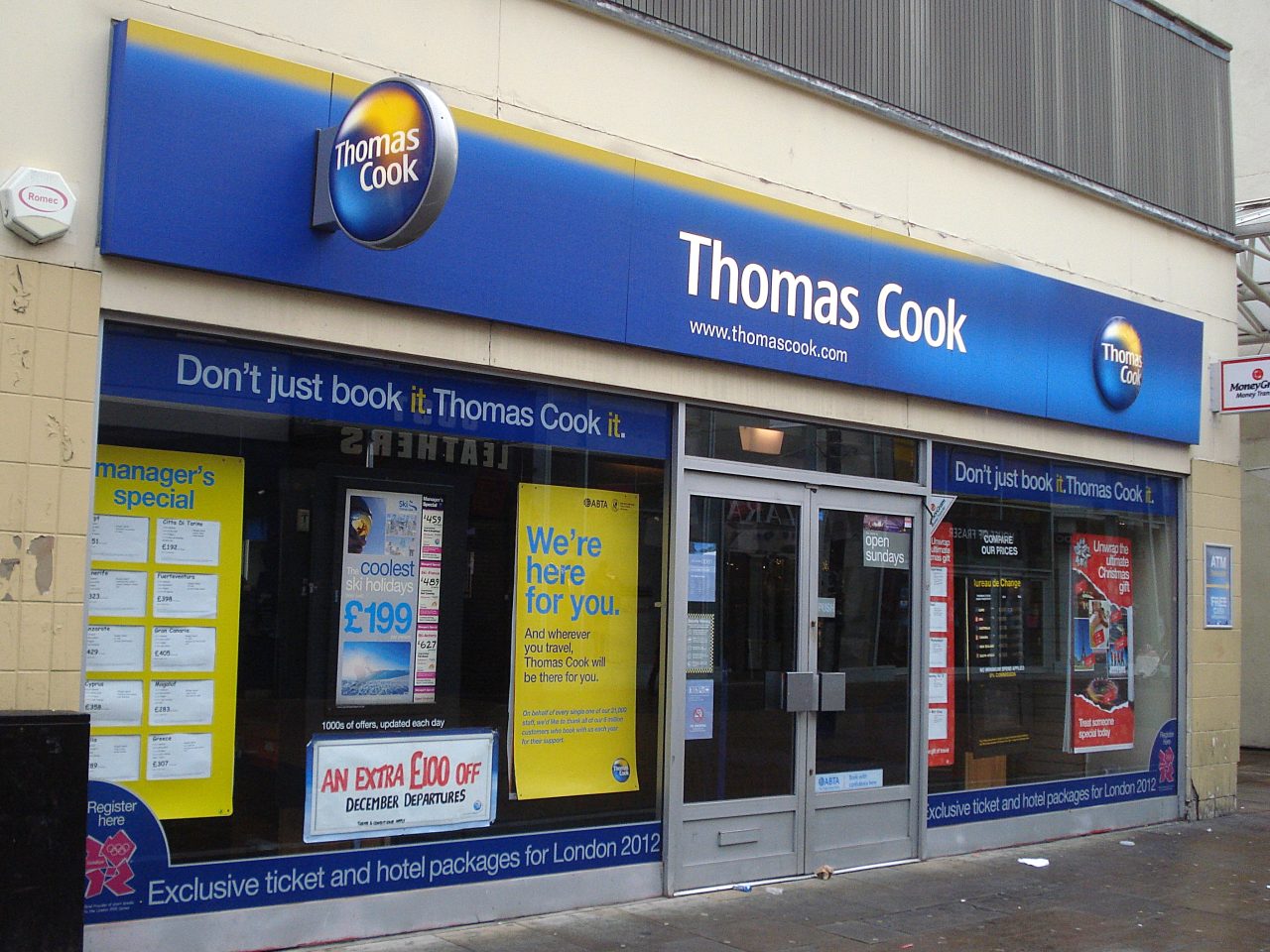
Friday I had a good job, Monday I’ve not got a job. Former colleagues still say it felt like a bereavement.
Thomas Cook was the company that pioneered the package holiday, making trips abroad affordable and accessible to ordinary people. Founded in 1841, the company collapsed in 2019 after 178 years of business. The company employed 21,000 people, including 9,000 in the UK, and operated in 16 countries.
Short-term pressures, such as political unrest in Turkey (one of its key destinations), played an important part in bringing the company down but Thomas Cook was in debt following a series of mergers a decade earlier.
By 2019 the company was in serious trouble and Fosun International, the largest shareholder, attempted a rescue deal that fell through in the Autumn of 2019. Condor, an airline owned by the group, was rescued by a bailout from the German government.
Both PwC, who audited the company from 2007 to 2016, and EY – who were the auditors from 2017 – were heavily criticised for signing off the accounts of the troubled company throughout those years. EY was placed under investigation by the Financial Reporting Council in October 2019.

Katy Walker worked at Thomas Cook for thirty years, starting in her early twenties on a temporary contract, then rising up the ranks to become a Cabin Manager. When the company collapsed in 2019, she and other long-time staff were devastated having formed strong friendships and relationships in their years together.
While she got a job with another airline, she and many other former Thomas Cook staff found themselves unemployed again when covid hit the aviation sector. She now works at a domestic violence refuge.
We all sort of bought into the family values that the company held. We were encouraged to have friendships and people married and had families. It wasn't just the job, it was a way of life and for the majority of us one which we grew up with. It was our first job with a permanent contract, we got married, some of us got divorced, we had children, we all supported one another. So when it did go under and we weren’t just ‘oh my God I’ve lost my job’, we were absolutely devastated.
I was just 22 or 23 when I started, it was just my dream. I always wanted to fly. I got a temporary contract, became permanent, then became assistant cabin manager and then cabin manager.
It was the people that made it a special place to work. We all got on incredibly well. And no one was ever the same after Thomas Cook collapsed. We had regular customers, people flew with Thomas Cook year in year out and as silly as it sounds you did recognise some people. I think we were all proud, that was one of the mission statements for the company, but we were proud to be part of it.
There has been rumbling in the background for years: the share prices have fallen or this or that. But I think because it had been such an iconic and long, ongoing company I don't think any of us actually believed the rumours. We were told that there was a deal on the table with Fosun International, stop listening to the newspapers, stop listening to the news, everything's going to be fine. It's business as normal but eventually I started to think “well, there's an awful lot of media interest and there’s got to be a certain element of truth in these rumours, and the share prices were now down to whatever pence they were compared to this time last year when they were nearly three pounds”. Then the phone was cut off in the crew room so you couldn't make any outgoing calls.
We still thought someone would step in and save the day. The planes were still always full, you never went with an empty or half empty plane. They were always full.
On a Friday night in September the news went round the staff WhatsApp group. It was like “Oh my God. Have you seen the news?” I spoke to a friend who said staff were going off sick because they were scared of getting stuck en route, and I said “I don’t blame them.” We were thinking we’re not going to survive the weekend. I was watching the news and constantly checking the WhatsApp group. There were lots of pictures from people taking their belongings home from the head office in Peterborough and they sent security so nobody could get in the building.
I was thinking “I'm not going to be going to work on Monday” I've got a really early flight and I'm not going to be going to work. It was announced I think it was at two o'clock in the very early hours of Monday morning [the 23rd September]. And that's when we knew we'd gone when they started repossessing planes and crew were putting pictures on the WhatsApp group. So we knew before it had gone on the news that we've gone under.
We all got an email to say, “you must ring this number at a certain time and this is the pin number.” When I rang they said, “Thomas Cook is no more, you need to go to the Job Centre, for those of you that were permanent, you will be entitled to some sort of redundancy severance pay.” Friday I had a good job, now I've not got a job and we didn't get paid for last month that we'd work because there was no money for us to have been paid. People that I'm close to now still say it felt like a bereavement.
I'd never been in a job centre my entire life. I didn't know what to do. I think: ‘I've gone from being a manager in an airline.’ I just went, I didn't know you've got to make an appointment. I've been flying for 30 odd years… I didn't know what to do.
It took about 90 days to get some sort of redundancy. The majority of us weren’t entitled to claim anything because we've got savings or partners or whatever. What made it worse was a lot of us secured new jobs with other airlines and then the pandemic struck. So now I work in a women’s refugee, helping women and children fleeing domestic violence.
A lot of us have been there [at Thomas Cook] for such a long time in managers positions and then all of a sudden, we're back in a junior role because there's nowhere else for us to go. That's quite difficult to do when you used to be in charge, you're making decisions and then you find yourself right at the bottom of the pecking order. A lot of people have struggled who've gone from having a job that they did for years and years and now with the chopping and changing they can't find something that they’re happy doing.
Thomas Cook should have been honest. What we were all told was “we’re one company” but they just saved one part of it. And that was quite a bitter pill to swallow. Plus the fact that the managing directors were given huge, huge, huge bonuses. Well, they clearly didn't deserve the bonuses.



